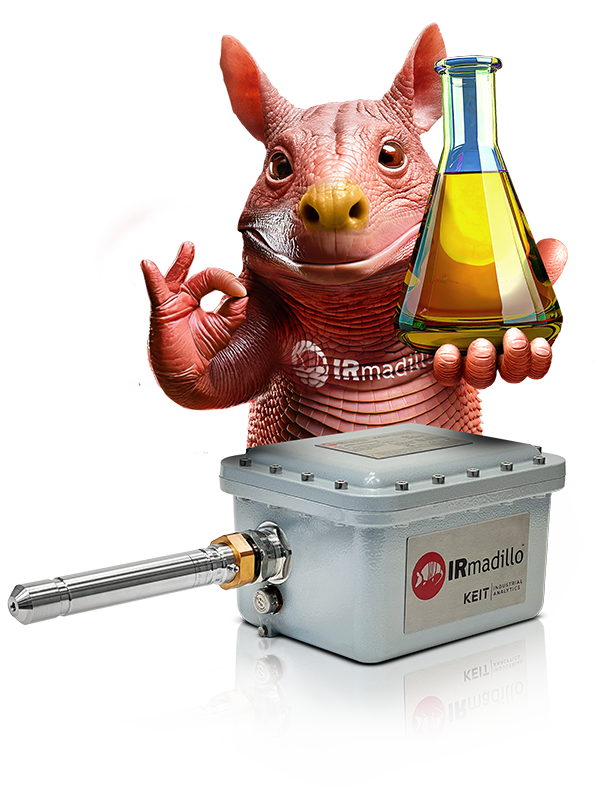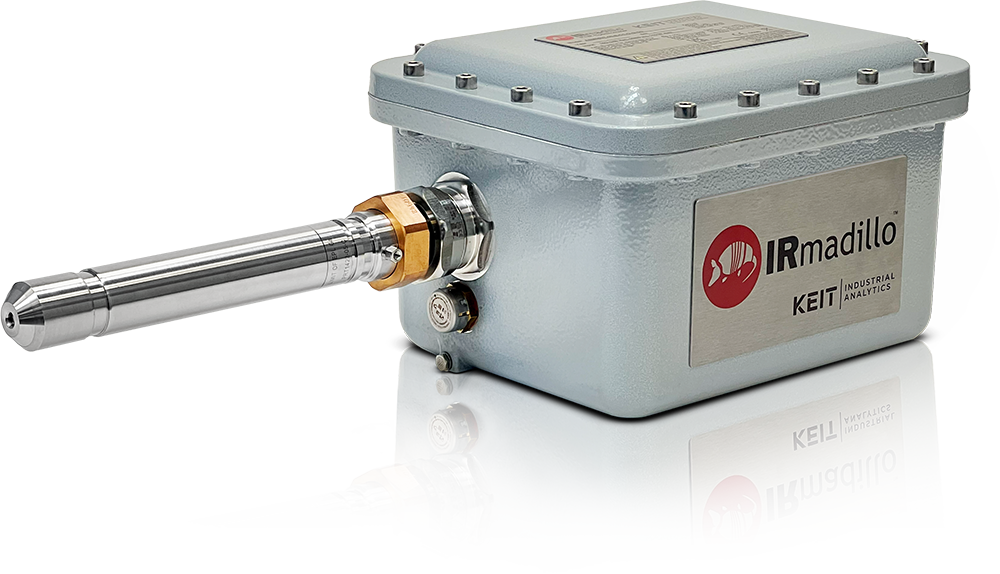Optimize oil and fat refining with IRmadillo

IRmadillo gives you all the real-time data you need to improve refining processes, no matter what the feedstock or product you're producing.
IRmadillo is a direct replacement for lab-based sampling or less accurate near-infrared solutions. Providing information on the concentration of multiple chemicals simultaneously, it packs the versatility and accuracy of mid-infrared spectrometry into a robust, compact enclosure that can be installed directly into the toughest of industrial environments.
Where can you use IRmadillo?
Refining processes vary from refinery to refinery, but in a typical process such as that shown below, there are several points of measurement where IRmadillo can provide vital information on chemicals and properties in real-time.
IRmadillo. Lab-grade accuracy in the heart of your processes

Thanks to its robust and compact design, [IRmadillo] is ideal for use in production facilities
Steffen Müller, Project Leader R&D, Florin AG
What can IRmadillo measure?

• Free fatty acids (FFAs)
• Soaps
• Metals (calcium and magnesium)
• Type of seed oil
• Phosphorus
• Phospholipids: hydratable
• Phospholipids: non-hydratable
• Fatty acid methyl esters (FAME)
• Glycerol
• Chlorophyll
• Color
• Moisture
• Sulfur
• Nitrogen
• Iodine value (IV)
...and more!
CASE STUDY:
Valtris Improves Degumming Process
French company Valtris Champlor processes 150,000 tonnes of crude oil every year, from a range of sources with highly variable amounts of phosphorus. Their outputs are used in many different products from biodiesel to oils for human consumption.
Valtris have installed the IRmadillo after the centrifuge, measuring phosphorus, calcium, magnesium and FFAs in the degummed oil. They use these measurements to optimize phosphoric acid dosing efficiency, reducing chemical use while avoiding the risk of variation in product quality.
Valtris have been able to cut phosphoric acid use by 11% and sodium hydroxide by 13%, all thanks to IRmadillo. These and other efficiencies are now saving the company €90,000 every year.
CASE STUDY:
Florin Improves Neutralization Efficiency
Florin AG is the largest manufacturer of edible oils and fats in Switzerland.
They use an IRmadillo to monitor levels of free fatty acids (FFAs) on the inlet of the centrifuge. This allows them to dose exactly the right amount of caustic solution to neutralize the FFA.
IRmadillo can measure the amount of FFAs in the crude oil no matter what feedstock they're using. This means that Florin can be certain that their product always maintains the high quality they demand, no matter what type of oil they are processing.
Florin AG’s first IRmadillo paid for itself within one year of installation.
"The IRmadillo has proven to be a very reliable analyser providing useful data"
Steffen Müller, Project Leader R&D, Florin AG
There’s not much IRmadillo can’t measure

Calibrating IRmadillo
Each unit is calibrated to fit your refinery, and to monitor the chemicals that are important to you. IRmadillo can even be calibrated to work at multiple different points in the same refinery.
IRmadillo observes every chemical present in the stream simultaneously, and outputs the results. If you have an enzyme-based process, it will look for enzymes. If you're using a traditional chemical process, it monitors chemicals.
In partnership with your engineering team, we find the best place to install IRmadillo to give optimum visibility for the process steps you want to observe.
I’m interested. What’s next?
We give you options to make it easy to start using an IRmadillo.
Whatever you choose, we’ll help you install, train your team, and can even calibrate a chemometric model.
Trial Rental
Why not try one out? We can provide an IRmadillo suited to your particular operating environment and bill you monthly for an agreed period.
Easy to renew, you have control over how long you keep it - from a few months to an even longer rent-to-own plan.
Purchase
Own your IRmadillo outright to monitor your processes on-line and in real time as you see fit.
Begin your discussion today to find out how you can get an IRmadillo installed into your system.
